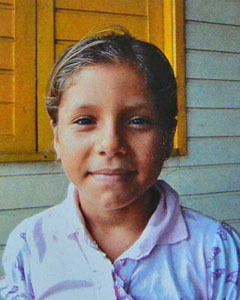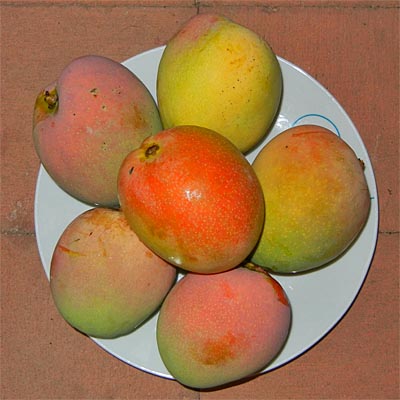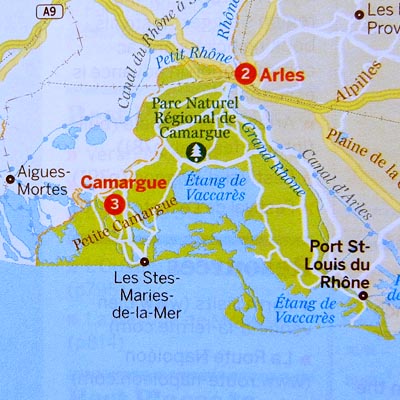|
Biographical Log of Michael Furstner - Page 225
09 | 10 ||
2011 :
Jan |
Feb |
Mar |
Apr |
May |
Jun |
Jul |
Aug |
Sep |
Oct |
Nov |
Dec || Page :
Previous |
Next
The Martinshof Story -
A Philosophy of Happiness -
Life Awareness -
Maps & other Text series
Most Recent -
Next -
Previous -
Page 1 -
Photos -
MP3s -
Maps & Text series -
Jazclass
Tuesday - Saturday, October 11 - 15 2011
(diary)
 This is Kamila my new sponsor child from Brazil. She
replaces José,
also from Brazil, who completed school and now has a job. My
other sponsor child is Maria who lives in Peru.
This is Kamila my new sponsor child from Brazil. She
replaces José,
also from Brazil, who completed school and now has a job. My
other sponsor child is Maria who lives in Peru.
I watched an interview of the accomplished scientist and
prolific novelist Alexander McCall Smith ("The No.1 Ladies Detective Agency") on TV
this week. He touched on two subjects which particularly were of
interest.
Firstly he is an effortless writer of fiction (easily
writing 1,000 words per hour) and compares his writing mode to playing music. He sits down, waits for a steady beat to
enter his conscience, then starts fitting the words, sentences
and paragraphs into the rhythm.
The very same thing happens
in Jazz improvisation. Whereas the musician uses the background
knowledge of a song to guide his creation, McCall Smith relies
on the established personalities of his characters that keeps
him on the right track. Most interesting!
Secondly McCall Smith broached on the subject of good
manners. "Manners (politeness)"
McCall Smith maintains, "are the small
building blocks on which tolerance in the world is
based." By acting politely towards an other person we
show our respect for that person and acknowledge his/her
existence as a fellow human being. This is an essential
ingredient for human society to flourish and to function in
harmony and without violence.
All small acts of politeness are beneficial :
- Helping someone to retrieve his/her luggage from an overhead
locker on a aeroplane or a train.
- Wait until everyone at the table has received their meal
before starting to eat yourself.
- Offering your seat in a bus to an elderly person or a
lady.
- Let someone else pass through a door before you. etc., etc., etc.
Every day of our lives opportunities occur
(while interacting with others) when we can choose to act politely or with
kindness towards someone else. And every time we do just that we
experience ourselves a sense of satisfaction, even
happiness for having done the right thing.
Sadly in our modern materialistic society, where everything evolves around
me, me, me, my
rights, my happiness, what do I get !! there appears to be
less and less consideration for anyone else.
A major reason for this decline is thought to be the breakdown
of the family as a unit (in much of the Developed world
!), where education and implementation of manners and respect
for others traditionally took place.
Can we turn this tide of selfishness and aggression around ?
Schools appear to take over where families no longer have
control. And what can the rest of us do ?? Lead by example !
Most Recent -
Next -
Previous -
Page 1 -
Photos -
MP3s -
Maps & Text series -
Jazclass
Sunday & Monday, October 16 & 17 2011
(diary)
 Yes, the mangos on our farm are ripe. Some are picked
early while still somewhat green outside, then wrapped in a page
of newspaper for a few days which will ripen them fully (such as
the 3 on the left on adjacent plate).
Yes, the mangos on our farm are ripe. Some are picked
early while still somewhat green outside, then wrapped in a page
of newspaper for a few days which will ripen them fully (such as
the 3 on the left on adjacent plate).
Once they start to
yellow they are fully ripened and very sweet to eat. I have one
for breakfast every morning.
It is a bit of an art to cut and prepare mangos as they have
quite a large pit inside. But I have been instructed by
Gordon (the mango master!) and am getting quite good at
it now.
Gordon and his wife Iris have left this morning (Monday) for
home in Victoria. It will take them about 10 days to drive the
3,500km or so with their caravan, stopping off in Alice Springs
for a couple of days to see their son there. Health permitting,
they will be back in April or May next year.
I watched an interview of Peter Gundall, the exuberant
former TV presenter of Gardening Australia, on TV last
night. He is now 84 (10 years my senior), and still as
enthusiastic as ever.
When asked whether he was religious he explained : "If religion is on the right, and atheism on the
left, I am farther to the left of atheism." In other
words belief or non-belief was simply not an issue for him.
The Christian priest, who conducted the interview, did not
do much better when he asked what Gundall considered to be the
purpose of life. Gundall replied that this was a nonsense
question, as "life is a purpose
itself."
Peter Gundall's views, I suspect, are very much the same as many
(if not most) Caucasians in Australia these days (including
myself). Perhaps this is one of the reasons why I feel at home
here in this country.
When I hear statements being made (usually by politicians) like
"God bless America" or "God bless the Queen" I become very
suspicious of the society in which these sentences still
reverberate and are considered meaningful, as to me, they reveal
either ignorance or a gross denial of the reality of life and
our understanding of it in this 21st Century.
Most Recent -
Next -
Previous -
Page 1 -
Photos -
MP3s -
Maps & Text series -
Jazclass
Tuesday October 18 2011
(diary, science)
 The physics theories of the large and very large (Einstein's theory
of General Relativity) and the very small (Quantum
Mechanics) are not compatible and despite all efforts so far have
not been reconciled. But are recent experiments giving us a new lead
into this problem ?
The physics theories of the large and very large (Einstein's theory
of General Relativity) and the very small (Quantum
Mechanics) are not compatible and despite all efforts so far have
not been reconciled. But are recent experiments giving us a new lead
into this problem ?
According to Einstein's theory, nothing can travel faster than light.
The faster we travel the more time slows down until, at the
speed of light (300,000 km per second) time stands still.
Therefore traveling faster than light would mean going backwards in
time.
Perhaps you too have heard on the news however that at CSERN
(Europe's main particle-physics laboratory) they have completed an
experiment (called OPERA) where neutrino particles traveling
underground through rock over a distance of 730km were found to travel
slightly faster than light (60 nanoseconds).
Although
the researchers did a lot of double checking of the accuracy of their
equipment (and found nothing wrong) you still might put this down to
an error of inaccuracy. Except for one thing (as I read in The
Economist of Oct.1, 2011 page 77) : the same thing happened with
an experiment (called MINOS) in 2007 at the Fermi National
Accelerator Laboratory ("Fermilab") near Chicago USA.
At that
time they put the "discrepancy" down to an error in accuracy of their
equipment. But in view of the recent OPERA experiment that is becoming
increasingly unlikely. Encouraged by the recent results
Fermilab is now proposing (Government finance permitting) more neutrino
tests (in 2013) trying to replicate the results.
If neutrinos are definitely found to be traveling faster than
light, what does this mean and how could they possibly do that ?
It is thought that neutrinos (which can travel unhindered through virtually anything) perhaps take a short cut by
traveling through one of the additional 7 dimensions
(discovered theoretically) besides space and time, but which we have
never entered through experiments before. This would put the
study of physics at the start of a whole new era.
Most Recent -
Next -
Previous -
Page 1 -
Photos -
MP3s -
Maps & Text series -
Jazclass
Wednesday & Thursday October 19 & 20 2011
(diary)
 I am busy working out the itinerary for my trip to Europe next year.
I am busy working out the itinerary for my trip to Europe next year.
My initial idea was to visit several places in the Provence (on my way from Germany to Spain), but I have changed my mind and am now focusing in on what I really want to see. I always enjoy more staying at one place for several days, than moving every 1-2 days from one place to the next.
So I will go directly from Germany to the Camargue and stay at the small seaside port of Les Saintes-Maries de la Mer, from where I can explore the area with walks, cycling and boat trips.
I will stay there for 5 or 6 nights, then move to Arles for one night in order to catch the early train next morning west to Bayonne (just North of the Spanish border). According to the Lonely Planet Guide (LPG) Bayonne is one of the nicest small towns in SW France.
The marshes of the Camargue are full of bird life, including of course the famous pink flamingoes, and there are lots of walking and cycling tracks through the National park to explore and lovely waterways to travel by boat.
I will book a small hotel only a stone throw away from Saintes-Maries' harbour where you can eat a dozen oysters for just €6 (says the LPG)!
Comments -
Most Recent -
Next Page -
Previous -
Top -
Photos -
MP3s -
Maps & Text series -
Jazclass
Copyright © 2011 Michael Furstner
|
 This is Kamila my new sponsor child from Brazil. She
replaces
This is Kamila my new sponsor child from Brazil. She
replaces  Yes, the mangos on our farm are ripe. Some are picked
early while still somewhat green outside, then wrapped in a page
of newspaper for a few days which will ripen them fully (such as
the 3 on the left on adjacent plate).
Yes, the mangos on our farm are ripe. Some are picked
early while still somewhat green outside, then wrapped in a page
of newspaper for a few days which will ripen them fully (such as
the 3 on the left on adjacent plate).  The physics theories of the large and very large (Einstein's theory
of General Relativity) and the very small (Quantum
Mechanics) are not compatible and despite all efforts so far have
not been reconciled. But are recent experiments giving us a new lead
into this problem ?
The physics theories of the large and very large (Einstein's theory
of General Relativity) and the very small (Quantum
Mechanics) are not compatible and despite all efforts so far have
not been reconciled. But are recent experiments giving us a new lead
into this problem ?